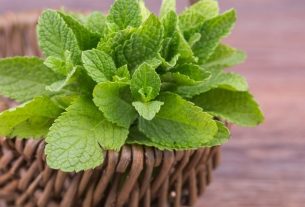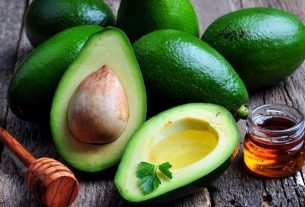Copaiba is a medicinal plant of the species Copaifera langsdorffiiindicated for the treatment of skin problems, such as eczema, psoriasis or wounds, or for coughs, bronchitis, joint pain or urinary infections, as it has anti-inflammatory, healing, antiseptic, expectorant and diuretic properties.
The normally used part of this medicinal plant is the essential oil obtained from the oleoresin extracted from the tree trunk, which can be used on the skin or in the preparation of capsules, creams, lotions, shampoos, ointments and soaps. Furthermore, the bark of the copaiba trunk can also be used to prepare tea.
Copaíba, also known as true copaíba, copaiva or copaíba balm, can be found in pharmacies or health food stores, and should be used under medical advice or from a herbalist.

What is it for
Copaiba is indicated to help in the treatment of:
- Dermatitis;
- White cloth;
- Skin mycoses.
- Rash on the skin;
- Eczema;
- Psoriasis;
- Acne;
- Rheumatoid arthritis;
- Joint or muscle pain;
- Wound healing and disinfection;
- Dandruff;
- Cough;
- Bronchitis;
- Asma;
- Flu and colds;
- Urinary infections, such as cystitis;
- Urinary incontinence;
- White discharge;
- Gingivitis;
- Hemorrhoid;
- Constipation;
- Dysentery;
- Gastritis;
- Infection by H. pylori;
- Gastrointestinal ulcers.
Furthermore, copaiba can be used to combat infections that can be transmitted sexually, such as syphilis and gonorrhea.
Copaiba is rich in sesquiterpenes, such as beta-caryophyllene, beta-bisabolene and γ-muurolene, flavonoids, alkaloids and coumarins, which are the active substances responsible for its anti-inflammatory, healing, antiseptic, antimicrobial, diuretic, laxative and expectorant properties. , antacids and digestive.
Although it has health benefits, copaiba does not replace medical treatment and should be used under the guidance of a doctor or herbalist.
How to use
Copaiba can be used in the form of essential oil or capsules, or in the form of tea prepared with the bark of this medicinal plant.
1. Copaiba oil
Copaiba essential oil can be used in the form of a balm, applied to the skin, to help treat skin problems, such as eczema, psoriasis, dermatitis, skin mycoses, wound healing or disinfection, for example.
Ingredients
- 1 or 2 drops of copaiba essential oil;
- Vegetable carrier oil, such as almond or coconut.
Preparation mode
Mix the drops of copaiba essential oil in a little of the vegetable carrier oil. Apply the mixture to the area of skin to be treated, massaging gently until the oil is completely absorbed. It is recommended that this procedure be done at most twice a day.
Another option for using copaiba oil for skin and joint problems is by heating a small amount of oil, which, when warm, should be passed over the area to be treated up to twice a day.
Copaiba essential oil can also be used in the form of inhalation or orally. See other ways to use copaiba oil.
2. Copaiba tea
Copaiba tea must be prepared with the bark of the tree trunk and can be used for heartburn, gastritis, stomach ulcers, cystitis, gingivitis or dysentery, for example.
Ingredients
- 2 pieces of copaiba bark;
- 1 liter of water.
Preparation mode
Place the ingredients in a bowl and bring to a boil for about 15 minutes. Turn off the heat, strain, wait for it to cool and drink 1 cup of tea 2 to 3 times a day.
3. Copaiba capsules
The copaiba capsule should be taken orally, with a glass of water, and the normally recommended dose is 1 capsule of 250 mg, 1 to 2 times a day, or as directed by a doctor or herbalist.
The copaiba capsule can be indicated for respiratory or urinary diseases, for example.
Possible side effects
The most common side effects of copaiba are diarrhea, vomiting, stomach pain, tremor, insomnia, skin blisters or rash cutaneous. Know how to identify the symptoms of rash cutaneous.
Who shouldn’t use
Copaiba should not be used by children, pregnant or breastfeeding women.
Furthermore, copaiba should not be used without medical advice by people who have gastrointestinal disorders.
Copaiba should also not be used by people who are allergic to any of the constituents of this medicinal plant.
Bibliography
- ABRÃO, F.; et al. Copaifera langsdorffii oleoresin and its isolated compounds: antibacterial effect and antiproliferative activity in cancer cell lines. BMC Complement Altern Med. 15. 443, 2015
- DE OLIVEIRA SANTOS, M.; et al. Copaifera langsdorffii Desf.: A chemical and pharmacological review. Biocatalysis and Agricultural Biotechnology. 39. 102262, 2022
- ANTONIO, AS; et al. Chemical variability of Copaifera langsdorffii Desf. from environmentally contrasting populations. Nat Prod Res. 1-5, 2022
- DE OLIVEIRA SANTOS, M.; et al. Chemical composition variation of essential oils of Copaifera langsdorffii Desf. from different vegetational formations. Nat Prod Res. 1-6, 2022
- FENCES, LAR; et al. Clinical and Antimicrobial Evaluation of Copaifera langsdorffii Desf. Dental Varnish in Children: A Clinical Study. Evid Based Complement Alternat Med. 2021; 6647849, 2021
- Paul governs; BIAGI Marco. Anti-Helicobacter pylori activity and characterization of Copaifera langsdorffii Desf. extracts. 2017. University of Siena.
- ARROCHO Jorge et al. Healing effect of Copaifera officinalis (copaiba) oil in patients with peptic ulcer. Annals of the Faculty of Medicine of Peru. 72. 2; 113-117, 2011
- GUIMARÃES, Anna Luísa Aguijar; et al. Antimicrobial Activity of Copaiba (Copaifera officinalis) and Pracaxi (Pentaclethra macroloba) Oils against Staphylococcus Aureus: Importance in Compounding for Wound Care. Int J Pharm Compd. 20. 1; 58-62, 2016
- TRINDADE, Rafaela; et al. Copaifera of the Neotropics: A Review of the Phytochemistry and Pharmacology. Int J Mol Sci. 19. 5; 1511, 2018
- BAHR, Tyler. Effects of a massage-like essential oil application procedure using Copaiba and Deep Blue oils in individuals with hand arthritis. Complement Ther Clin Pract. 33. 170-176, 2018
- DIAS, Débora S.; et al. Copaiba Oil Suppresses Inflammatory Cytokines in Splenocytes of C57Bl/6 Mice Induced with Experimental Autoimmune Encephalomyelitis (EAE). Molecules. 19. 8; 12814–12826, 2014
- PIERI, FA; et al. Copaiba oil (Copaifera sp.): history, extraction, industrial applications and medicinal properties. Reef. Bras. Planted With. 11. 4; 465-472, 2009
- AMES-SIBIN, Ana P.; et al. β-Caryophyllene, the major constituent of copaiba oil, reduces systemic inflammation and oxidative stress in arthritic rats. J Cell Biochem. 119. 12; 10262-10277, 2018

Sign up for our newsletter and stay up to date with exclusive news
that can transform your routine!
Warning: Undefined array key "title" in /home/storelat/public_html/wp-content/plugins/link-whisper-premium/templates/frontend/related-posts.php on line 12
Warning: Undefined array key "title_tag" in /home/storelat/public_html/wp-content/plugins/link-whisper-premium/templates/frontend/related-posts.php on line 13



